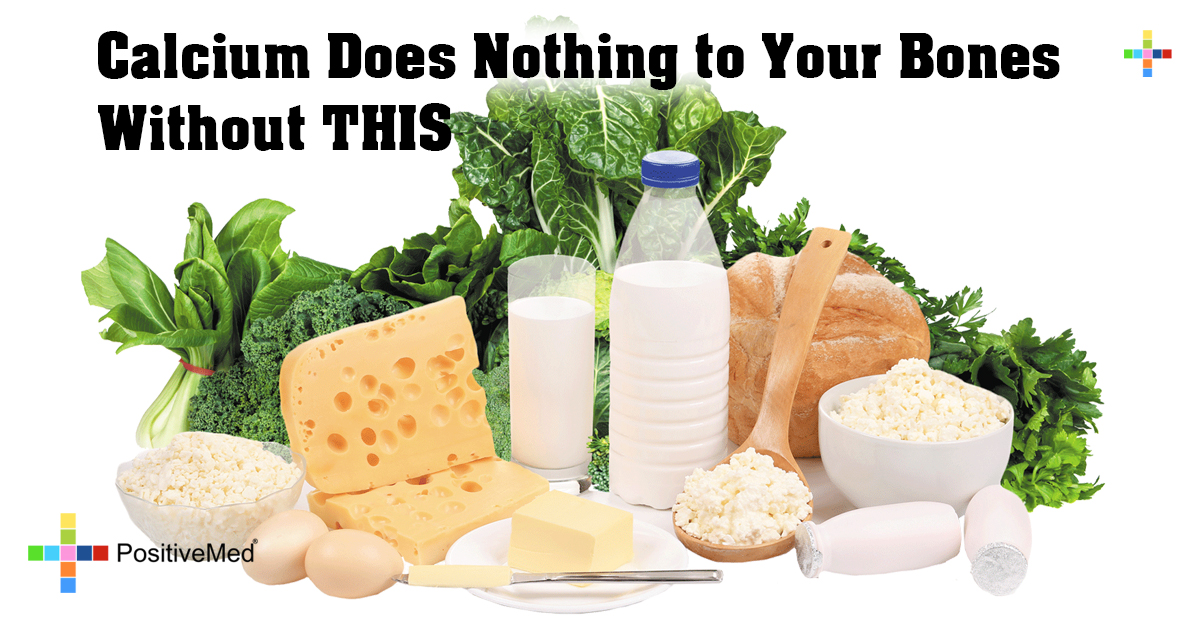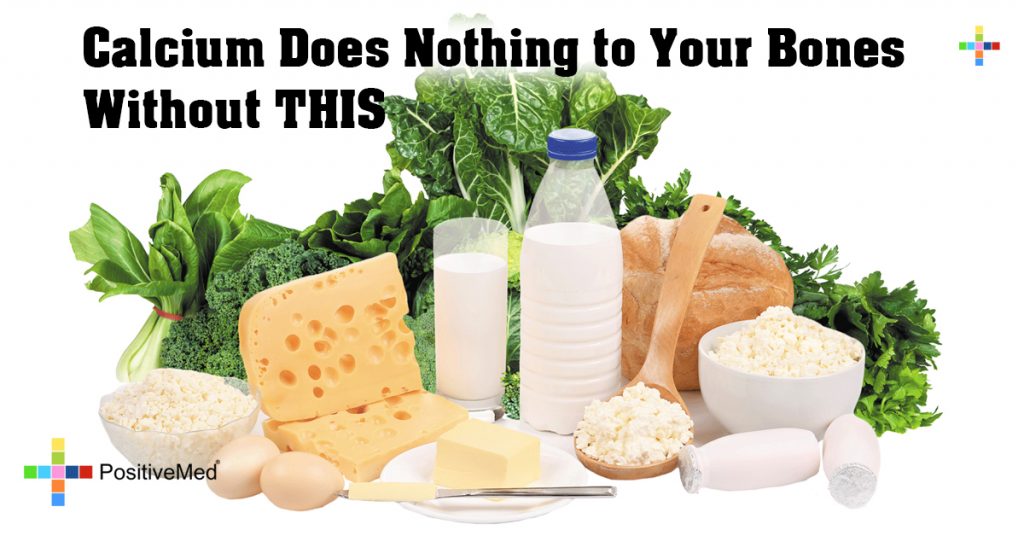
Calcium Does Nothing to Your Bones Without THIS
Most people believe that calcium is the number one way to build strong bones, the truth is that magnesium also plays a very important role in bone health. In fact, the Pediatric Academic Societies reports that magnesium is key to the strong bones development especially during childhood.

Magnesium and the Western Diet
Unfortunately, the acidic western diet can lead to higher incidences of osteoporosis in the elderly population. Acidic diets actually cause calcium loss from bones. Magnesium may be able to neutralize the acidity caused by a western diet, as around 60% of total magnesium is stored in bone.
Taking Calcium Without Magnesium
Because most people aren’t told about the benefits of magnesium, they focus on calcium for bone health. Unfortunately, too much inorganic calcium can cause kidney stones to form. Calcium works more conservatively when it is combined with magnesium, and magnesium increases the amount of organic calcium in your blood. Most magnesium supplements are combined with calcium because of how well they work together.
The Benefits of Magnesium
There are more benefits of magnesium than just bone health. Magnesium regulates blood pressure, reduces heart attack risk, and reduces the risk of developing type II diabetes. Magnesium also reduces the frequency of migraine headaches and alleviates the symptoms of depression.
The US Department of Agriculture Human Nutrition Research Center on Aging at Tufts University confirms that magnesium also increases bone mineral density. Magnesium is so important to bodily function that the body will take magnesium from tissue and bone if there is not enough circulating in the blood.
Who is at Risk for Magnesium Deficiency?
Anyone can become deficient in magnesium, but some groups are more prone to this malady than others. Those who are at risk for magnesium deficiency include:
Long-distance runners
People who are dehydrated
Individuals with gastrointestinal disorders
People experiencing kidney problems
Older adults
Individuals who consume large amounts of fiber supplements
People who eat a low-protein diet
RELATED ARTICLE: FIND OUT WHAT SCIENTISTS SAY AGAINST ONE OF THE MOST POPULAR DIET (IT’S HEALTH HAZARDOUS)!
Some medications can affect the absorption of magnesium as well. You may wish to ask your pharmacist or doctor if any of the medications you take could cause a magnesium deficiency. If you fit into any of the categories listed above, you may want to ask your doctor if you should be eating more foods that contain magnesium or if you should be taking a magnesium supplement.
How to Get Enough Magnesium
Because magnesium is so important to bone health, it is important to try to get some magnesium into your body every day. The best natural sources of magnesium come from:
Green, leafy vegetables
Cacao and other dark chocolates
Beans, seeds, and nuts
Fish
Whole grains
Avocados
Yogurt
Bananas
Dried fruit
It’s important to note that cooking leafy vegetables can lessen the amount of magnesium you can get from consuming them. You can also absorb magnesium into your body by soaking in an Epsom salt bath.
Making sure that you get enough magnesium in your diet will assist you in maintaining optimum bone health. However, you should always let a healthcare professional know when you plan to make drastic changes to your diet or plan to take a supplement. Consuming too much magnesium may cause digestive troubles. In this video from Dr. Susan E. Brown, PhD, explains magnesium’s role in preventing osteoporosis and supporting bone health.






